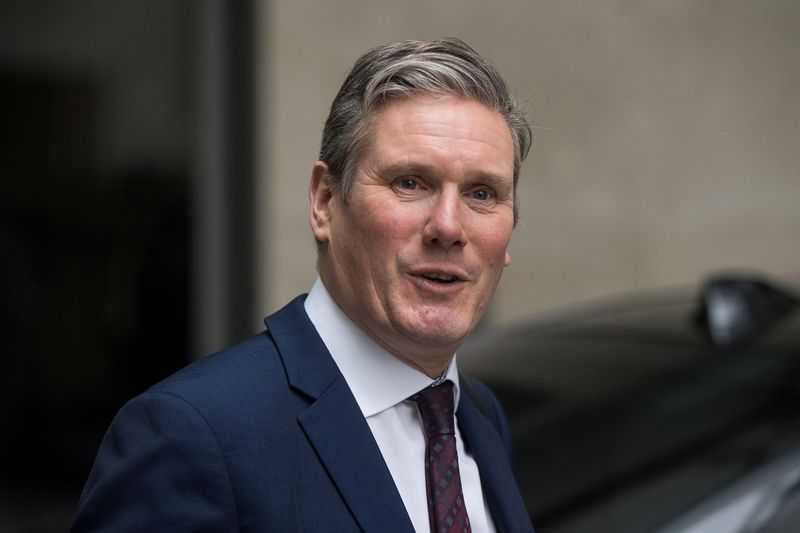By Elizabeth Piper
LONDON (Reuters) - Britain's Labour Party will elect a new leader on Saturday, with Brexit policy chief Keir Starmer the frontrunner to take over a deeply divided party that, under veteran socialist Jeremy Corbyn, suffered a crushing defeat in a December election.
The finale of the leadership contest, under way since Corbyn announced his resignation after the election, has been overshadowed by Britain's growing coronavirus outbreak, all but silencing the hopefuls' campaigns.
But for many in Labour, Saturday's election will be a chance for the party to start afresh and move away from years of rows over everything from how to approach Britain's departure from the European Union and accusations of anti-Semitism among members, to the party's turn to the left under Corbyn.
It may not be easy. Prime Minister Boris Johnson's Conservatives have occupied much of traditional Labour territory, with the coronavirus crisis prompting the ruling party to turn on the spending taps and end economic austerity.
"This election has been long – and it's fair to say that it hasn't ended in the way that any of us expected," Starmer told supporters on Thursday in an email run under his slogan "another future is possible".
"With the campaigns that all of the candidates have run, I honestly believe that we have come out of the other end of this contest as a better party: more united and ready to build another future."
Starmer, who has been careful to try to carry Corbyn's supporters while also keeping more centrist Labour members on board, leads in the polls, ahead of Rebecca Long-Bailey, an ally of Corbyn, and third-placed Lisa Nandy.
Labour's more than 580,000 members, affiliate members through trade unions or socialist societies and people who paid 25 pounds to be registered supporters have all been eligible to vote in the election.
The new leader will be announced on Saturday morning in a statement, rather than at a live event because of coronavirus, with the three hopefuls having had to record a victory speech ahead of time before knowing the result.
Starmer, a former director of public prosecutions who was knighted in 2014 for services to law and criminal justice, has promised not to "over steer" the party back to the centre, but has also put forward a more pro-EU stance, suggesting he would bring back free movement for the bloc's citizens.

But many who backed Corbyn say they fear Starmer will come under pressure to dispense with the former leader's left-wing agenda and try to rebuild a membership base from the centre, changing the party back to something closer to the one led by Tony Blair, who was prime minister from 1997 to 2007.